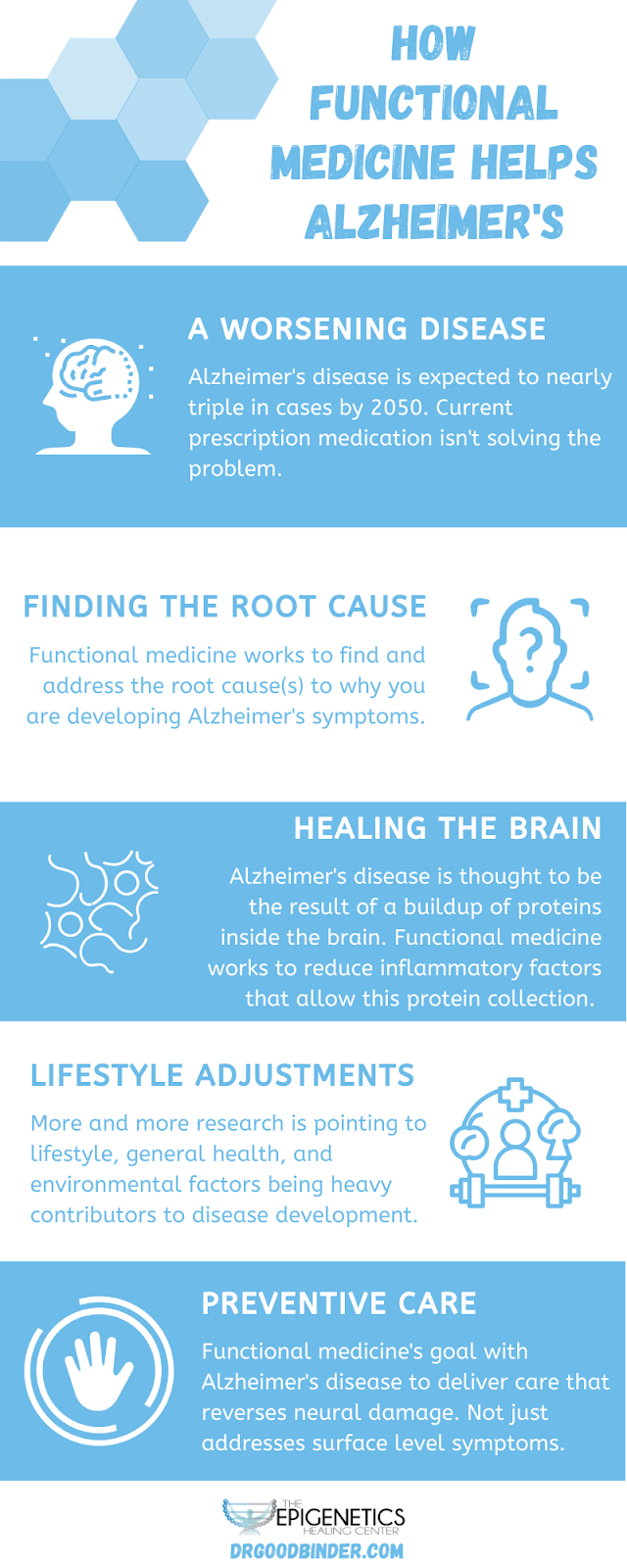
What’s the Difference Between Hashimoto’s Thyroiditis and Hypothyroidism?
The thyroid, located at the base of the neck, is a butterfly-shaped…
Alzheimer’s disease is a worsening issue across the world. Currently, more than 5 million Americans are living with this cognitive disease. By 2050, it is estimated that the number will rise to nearly 14 million.
Not only is the disease worsening in prevalence, but Alzheimer’s disease remains one of the leading causes of death in the United States. This condition is not only devastating to the diagnosed individual but also the family and caregivers responsible for loving and treating them. The effects of Alzheimer’s can be intense and widespread, tearing families apart, and costing an overwhelming amount of money for the necessary care and attention.
For mild to moderate cases of Alzheimer’s, a traditional care route might prescribe a type of medication called cholinesterase inhibitors. These medications like galantamine or rivastigmine work to reduce or minimize the associated symptoms and control some behavioral aspects. While prescription medication may help alleviate some symptoms for certain patients, this treatment plan fails to address the root cause of the disease and does not work to reverse its course of action.
A functional medicine approach works to piece together your physiology or lifestyle factors that may be resulting in your illness. Once these markers have been identified, we can work to improve your health.

The medical community still has a lot to learn regarding the physical and biological health of the brain. Due to this, a lot of question marks surround what exactly causes Alzheimer’s disease to occur. What is suspected of the condition is that as individual ages, the brain naturally shrinks in size, but an unhealthy amount of neurons become damaged, stop functioning properly, and die. This disrupts the flow of neuron networks that are critical to the brain’s ability to control communication, metabolism, and bodily repair.
What is suspected to be the leading cause of this brain deformation is the buildup of harmful proteins called amyloid plaque and neurofibrillary tangles. Chronic inflammation of the brain, caused by a malfunctioning cell type is thought to contribute the allowed buildup of proteins to neurons.
But ultimately, what causes this damage to occur to the brain? Research suggests that a great deal might be due to genetic, health, environmental, and lifestyle factors. It is these associated elements that functional medicine seeks to address.
The best way to stop the effects of Alzheimer’s disease is early prevention. Therefore, even if you or a loved one is displaying early symptoms of the condition, such as forgetfulness, work can be done to prevent further decline.
A shrinking hippocampus is a hallmark symptom of Alzheimer’s. The brain component is essential to forming new memories, and the general wellbeing of the brain as a functioning organ. Some of the most common causes of a shrinking hippocampus involve:
All of these causes can be managed and helped through functional medicine. Instead of giving a pill to try and reduce the glaring symptoms of anxiety, for example, a functional medicine approach works to change lifestyle and environmental factors that will minimize the root cause of your anxiety. By tracking down the start of the problem, we can often see better results in the long run.
Therefore, when seeing a functional medicine doctor you will be assessed in multiple areas of your life to understand what could be contributing to the regression of brain neurons. By fixing issues like diet, exercise, stress management, chronic disease management, and more, you are likely to better prevent Alzheimer’s disease from occurring or further progressing.

The thyroid, located at the base of the neck, is a butterfly-shaped…

When the immune system mistakenly targets healthy cells and tissue, overproduction of…

Crohn’s disease affects both men and women, typically between the ages of 15…
